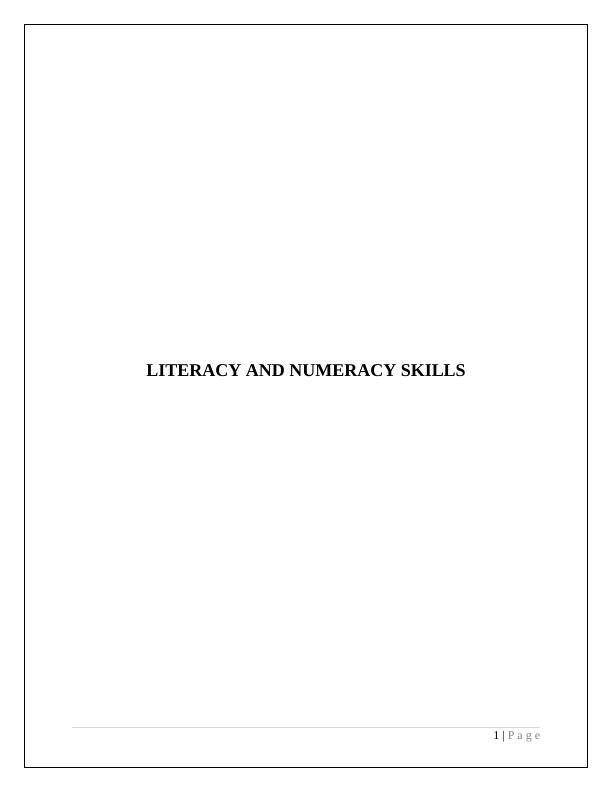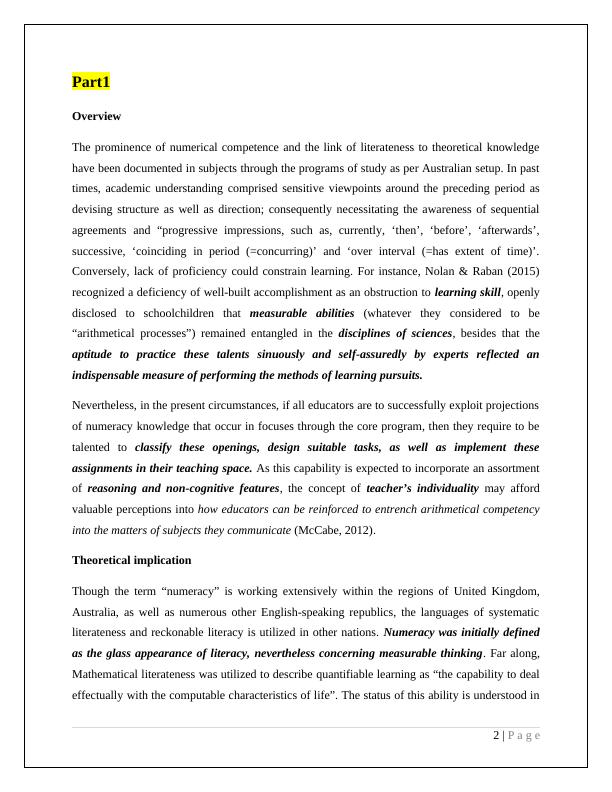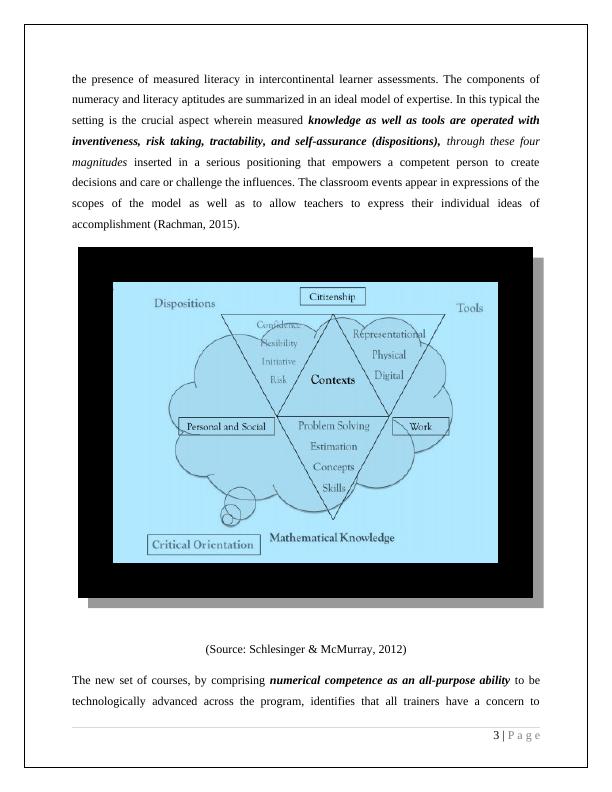Literacy and Numeracy Skills in Education
Explain the meaning and importance of literacy and numeracy across the curriculum, and identify the demands within a specific secondary school discipline.
10 Pages2529 Words67 Views
Added on 2023-01-12
About This Document
This article discusses the significance of literacy and numeracy skills in education and how they can be developed in students. It explores the role of teachers in fostering these skills and provides insights into the theoretical implications of numeracy and literacy. The article also highlights the specific literacy and numeracy demands in the subjects of Physics and offers strategies for educators to enhance students' proficiency in these areas.
Literacy and Numeracy Skills in Education
Explain the meaning and importance of literacy and numeracy across the curriculum, and identify the demands within a specific secondary school discipline.
Added on 2023-01-12
ShareRelated Documents
End of preview
Want to access all the pages? Upload your documents or become a member.
Literacy and Numeracy Capabilities in the Australian Curriculum
|11
|3030
|450
The 21st Century Numeracy Model
|10
|2768
|480
Importance of Numeracy in Early Childhood Education
|7
|1662
|411
Learning Across the Early Childhood Curriculum
|9
|1951
|293
EARLY CHILDHOOD EDUCATION.
|10
|2789
|2
Play-based Learning and Child Development
|12
|2603
|30



